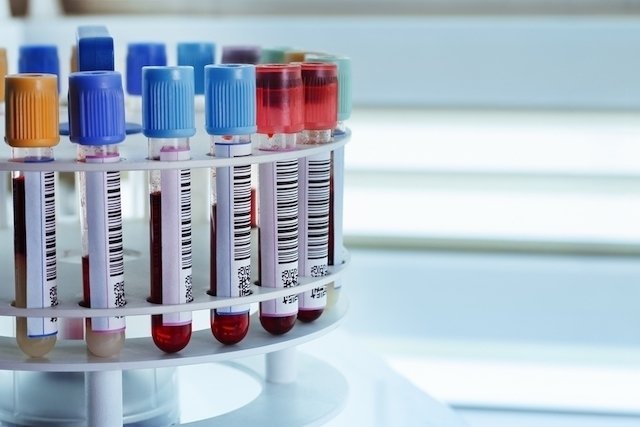CHCM is the acronym for mean corpuscular hemoglobin concentration, that is, this index allows the amount of hemoglobin per red blood cell to be assessed.
An increase or decrease in MCHC may be a sign of anemia, changes in the thyroid, drug interactions or excessive consumption of alcoholic beverages, for example, and it is important that the MCHC is evaluated together with the results of other tests.
CHCM is an index present in the blood count and is usually evaluated together with other blood count parameters, such as MCV, HCM, RDW and number of red blood cells and hemoglobin. See more about the blood count.

Reference value
The normal MCHC value is between 31.0 and 36.0 g/dL, which may vary depending on the laboratory. To find out if the CHCM is normal, enter your test result into the following calculator:
What does the result mean
The increase or decrease in MCHC may be indicative of some situations that need to be evaluated by the doctor together with the results of other blood count parameters.
Do you have questions about your exam results?
High CHCM
High MCHC is when the value of this index is greater than 36.0 g/dL, indicating that there is a large amount of hemoglobin per red blood cell, so that they become darker, known as hyperchromic red blood cells.
High MCHC may be a sign of changes in thyroid function, excessive consumption of alcoholic beverages or hereditary spherocytosis, which is a type of hemolytic anemia in which the red blood cells become more rounded and can concentrate more hemoglobin. Learn more about hereditary spherocytosis.
low CHCM
Low MCHC is when the value of this index is less than 31.0 g/dL, indicating that there is a smaller amount of hemoglobin per red blood cell, so that they become lighter, being known as hypochromic red blood cells. See more about hypochromia.
Low CHCM may be a sign of:
- Thalassemia;
- Iron deficiency anemia;
- Anemia sideroblastic;
- Cardiac insufficiency;
- Hypothyroidism;
- Interaction between medications.
In case of change in the MCHC value, the doctor must evaluate the other parameters of the blood count, in addition to the results of other tests that may have been indicated. This way, it is possible to identify the cause of the CHCM change and, thus, initiate the best treatment, if necessary.
Bibliography
- SHENG, X.; et al. Higher Mean Corpuscular Hemoglobin Concentration is Associated with Worse Prognosis of Hepatorenal Syndrome: A Multicenter Retrospective Study. Am J Med Sci. 363. 1; 25-32, 2022
- YAMAGUCHI, S.; et al. Mean corpuscular hemoglobin concentration: an anemia parameter predicting cardiovascular disease in incident dialysis patients. J Nephrol. 35. 2; 535-544, 2022
- PENG, YF; et al. The Clinical Usefulness of Mean Corpuscular Hemoglobin Concentration in Patients with Pneumoconiosis. Int J Gen Med. 16. 3171-3177, 2023

Sign up for our newsletter and stay up to date with exclusive news
that can transform your routine!
Warning: Undefined array key "title" in /home/storelat/public_html/wp-content/plugins/link-whisper-premium/templates/frontend/related-posts.php on line 12
Warning: Undefined array key "title_tag" in /home/storelat/public_html/wp-content/plugins/link-whisper-premium/templates/frontend/related-posts.php on line 13



